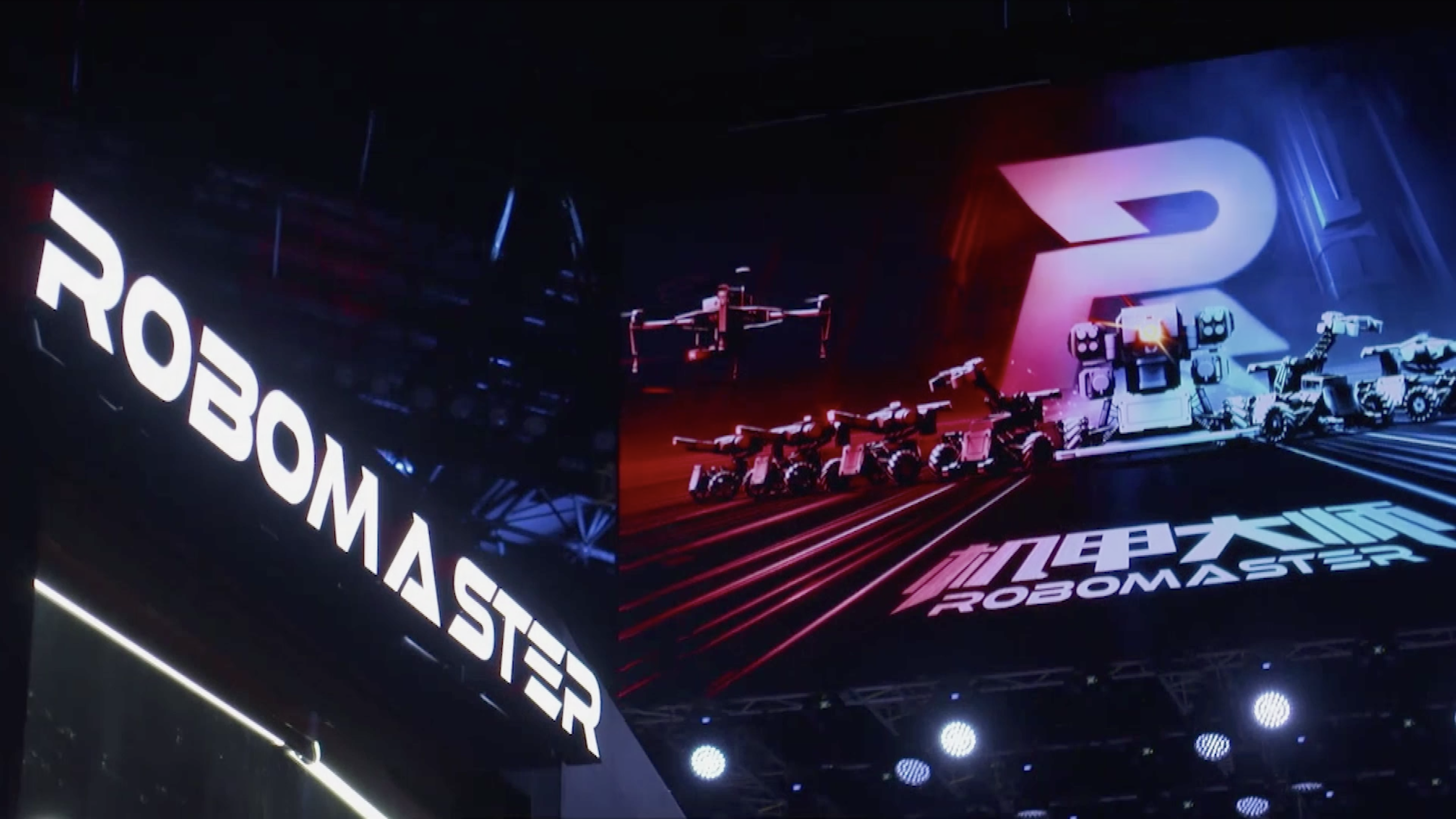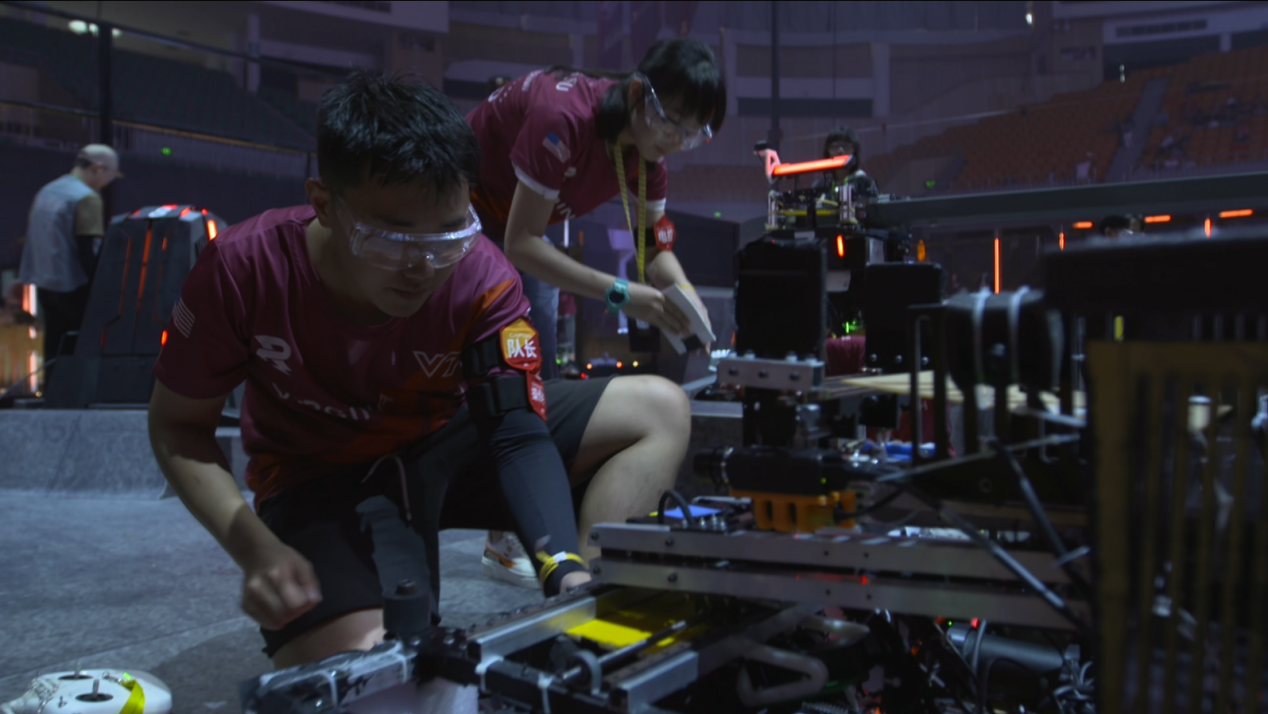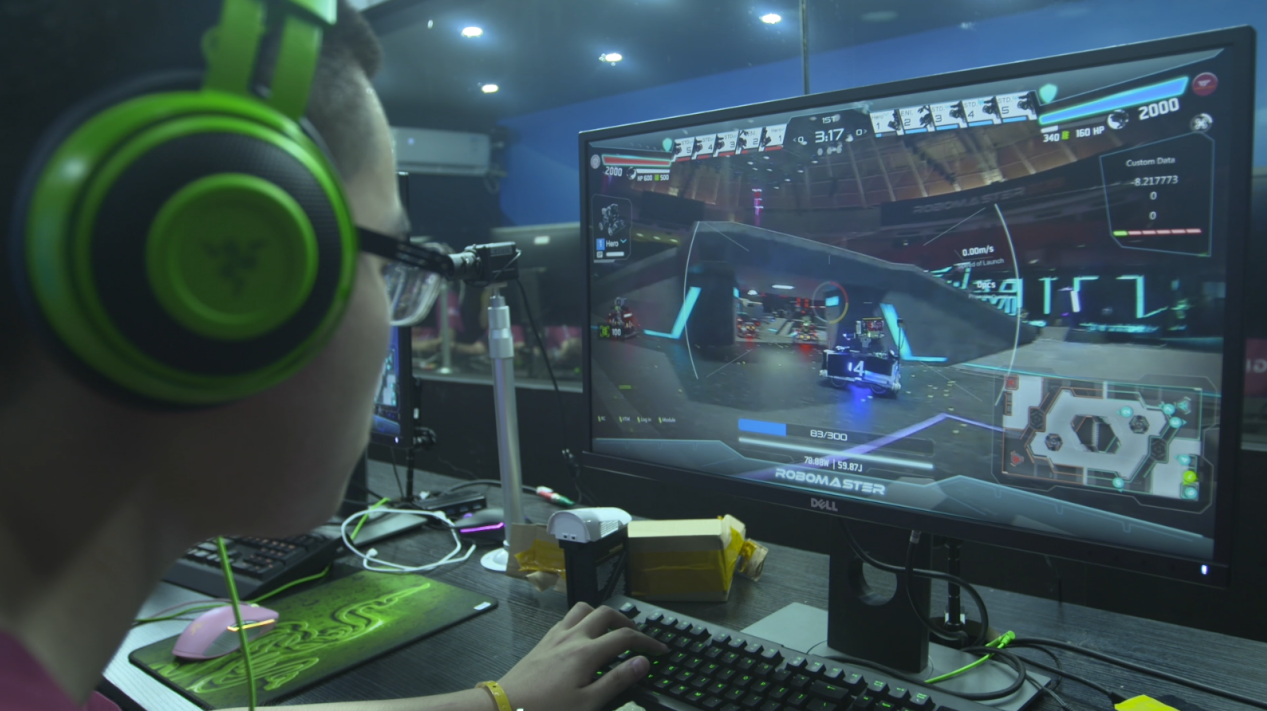00:42

For many years, robotics competitions were the preserve of professionals and experts – an opportunity for them to show off their latest inventions and technological breakthroughs. It would have been hard to imagine that pitting robots against one another would one day become a mass participation activity – and even a spectator sport.
But that's exactly what's happening in the city of Shenzhen, China's innovation hub, where for the past five years an annual competition called "RoboMaster" has been attracting college students from all over the world.
Sponsored by DJI, a world-leading manufacturer of commercial drones, RoboMaster features almost 200 teams from China and overseas.
Team "RoboGrinder" from Virginia Tech is one of the seven entrants from the United States. It's the third time they're competing in RoboMaster, and they're approaching the competition with a clear goal.
"This year we're sharing facilities with Beijing Institute of Technology, and we've invested a lot of effort and money. So, we hope to get to the final 16 this time," said Zhou Yipin, team leader of RoboGrinder.

Zhou Yipin (L), leader of team RoboGrinder, tests his robot before a contest. /CGTN Photo
Zhou Yipin (L), leader of team RoboGrinder, tests his robot before a contest. /CGTN Photo
It certainly won't be easy for RoboGrinder. Just to get to the final 16, they'll have to beat strong teams representing universities from across China, many of which have been taking part in robotics games internationally for over a decade.
"RoboMaster is an easy game, but it has a very high learning curve. To get to the very best, there are lots of small things," said Ross Williams, team manager of RoboGrinder.
The competition's inspiration is popular e-sport games like League of Legends and Counter-Strike: Global Offensive. Robots are assigned individual roles, in which they perform certain tasks on the battlefield, ranging from support engineer, to automated sentry and human-controlled attack drone. The game is won by destroying your enemy's base, and this is achieved by developing a strategy that combines the best of the individual robots' design features.

Like in video games, RoboMaster pilots fire small projectiles at their enemy's robots. /CGTN Photo
Like in video games, RoboMaster pilots fire small projectiles at their enemy's robots. /CGTN Photo
RoboMaster is far harder and more complex than it appears to the casual observer.
Building a sentry involves developing an independent visual recognition system; a drone requires a mastery of aerodynamics and a powerful engine. The pilots also need time to practise mastering the controls. Far more than other robotics competitions, RoboMaster demands very strong cross-disciplinary expertise.
"By working together, the students will know how to integrate multiple technologies in their robots. This is important for future engineers," said Professor Wu Jingshen, dean of the School of System Design and Intelligent Manufacturing at China's Southern University of Science and Technology.

RoboMaster requires cross-disciplinary knowledge and strong teamwork. /CGTN Photo
RoboMaster requires cross-disciplinary knowledge and strong teamwork. /CGTN Photo
This year's RoboMaster trophy went to China's Northeastern University. The winning team received a 75,000-U.S.-dollar prize.
RoboGrinder failed to make it to the top 16. But through the competition, they have gained valuable experience. As team leader Zhou said, making their dream robots a reality is already the most satisfying thing for them this summer.
"Rediscovering China" is a 30-minute feature program offering in-depth reports on major issues facing China today. It airs at 10:30 a.m. BJT (02:30 GMT) on Sunday, with a rebroadcast at 11:30 p.m. (15:30 GMT), as well as at 8:30 a.m. (00:30 GMT) on Monday and at 1:30 p.m. (05:30 GMT) Friday.